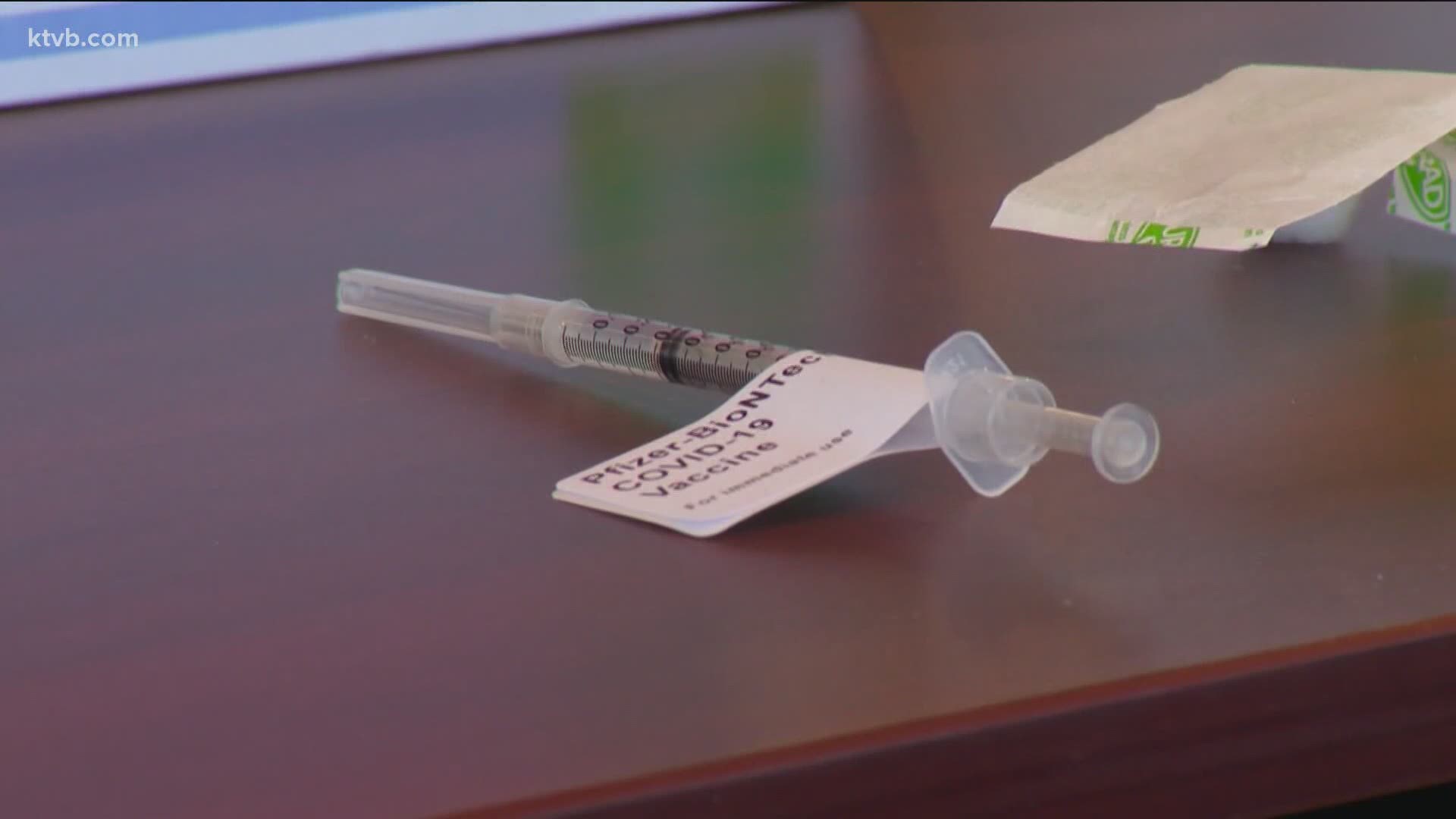Idaho's COVID-19 Vaccine Advisory Committee will meet on Friday afternoon to vote on a potential change to who falls under the second phase of vaccine rollout.
During the meeting, members will also discuss when and how Idaho will move on from Phase 1, which includes health care workers as well as residents and staff at long-term care facilities.
Phase 2 currently consists of all frontline workers, from first responders to teachers, but tomorrow's vote could change that.
The CDC's Advisory Committee on Immunization Practices has recommended a change to the second phase, a subcategory.
“What they have decided is to separate our essential workers into frontline workers and to add people over the age of 75 to that group,” said Dr. Patrice Anne Burgess, chair of Idaho’s Vaccine Advisory Committee.
Instead of one group, the ACIP is recommending that Idaho create a subgroup that would separate frontline workers into two categories: frontline essential workers and other essential workers.
After those two groups are vaccinated, high-risk people over the age of 75 would then be eligible to get vaccinated.
The change would "separate out the more critical infrastructure folks and get them vaccinated more quickly," Burgess said. “It’s hard when it’s not mandatory because if it’s mandatory then you can count up the people in that group and you can say okay we got that number done now it’s time to move to the next number. When it's voluntary you are kind of struggling to know."
The other challenge is how to know when to move on from Phase 1 because the demand for the vaccine has changed.
“People are changing their mind, some people weren't so sure if they wanted the vaccine and then they are reading more or they are hearing the experience of their coworkers and thinking, well maybe I do want the vaccine,” Burgess said.
There is currently no timeframe for when Idaho will enter Phase 2. In the meantime, the committee is trying to vaccinate at least 70% of any category before they proceed.
Administering vaccinations during a pandemic presents a lot of challenges that, according to Burgess, have slowed down the process.
But hope is on the horizon.
“Now that we have Moderna, which is more flexible with the storage, I think you are really going to see an uptick in vaccination,” Burgess said. “I hope that people can be patient with us and know that we are doing the very best."
Facts not fear: More on coronavirus
See our latest updates in our YouTube playlist:

